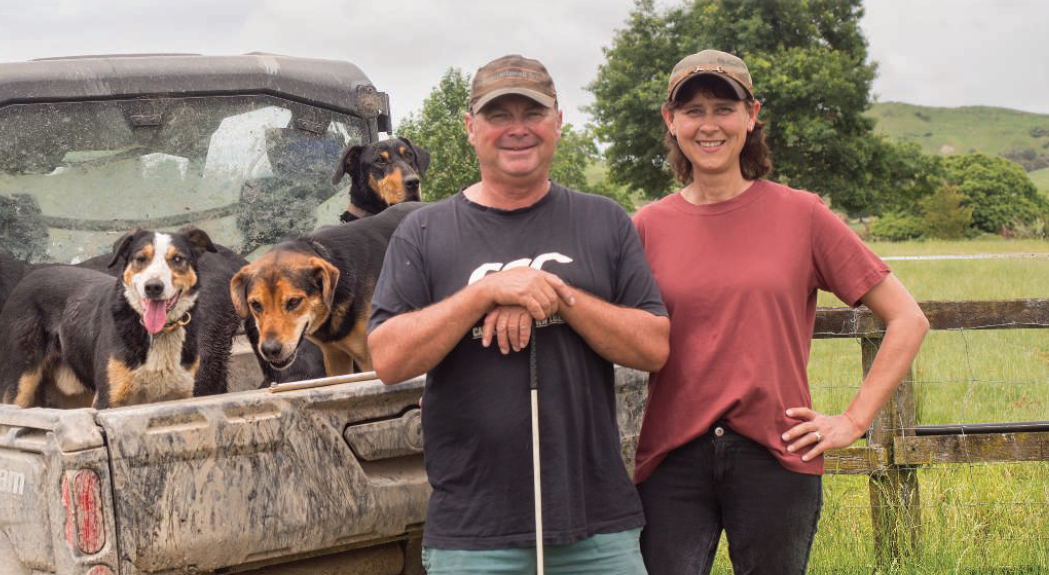Connecting Farms to Classrooms
This article first appeared online in The Gisborne Herald, From The Land - May 2023, Issue #27
Marie Burke has a dream to see Farmer Time as a regular part of children’s education across the land and she is constantly moving closer to making that a reality.
She’s thriving as the national coordinator for the programme that connects farmers with year 1-8 students, bringing everyday farming to life for youngsters who may have never gone rural. Year 2022 was the pilot for the programme that originated in the UK and now it’s really starting to gain traction in a country where farmers are celebrated for keeping the wheels turning. By the end of last year Marie had 47 teachers involved and had introduced more than 1000 city children to the world of farming. This year those numbers have grown by over 50 percent.
“It’s been a great start,” she says. “For the pilot programme in the first term (of 2022) we paired eight teachers with eight farmers just to see how it would fit into the New Zealand setting and it was spot on.”
Marie, who farms at Ormond with husband Rob, says the challenge is that so many youngsters no longer have a connection to a farm, or get to see how their food is grown.
“It used to be that the city cousins would come out to the country in the holidays and help out, but I don’t think that happens so much anymore. As our cities grow bigger there are more and more young people not having this early experience (on the land). Farmer Time brings the countryside to life.”
Marie’s repertoire of farmers is expanding and she even has mushroom and avocado growers and a sheep milking farmer, alongside her beef, dairy, sheep, deer and goat producers. She’s on the search for a beekeeper who is keen to be a part of the programme. Farms can be of all shapes and sizes.
“It doesn’t matter how big or small the property is, or what they grow,” says Marie, who is contracted by Beef + Lamb New Zealand to manage the programme which is partially funded by MPI.
“The smaller lifestyle properties are great to match with our younger classes who love meeting pet farm animals and learning how they are cared for.”
Farmers who grow for the Farmers’ Markets are ideal to match with a city class as students get to learn the full paddock-to-plate story — where the produce comes from and how it is grown, packaged and sold.
She figures the secret of the success of Farmer Time is the simplicity of the programme coupled with the flexibility for both farmer and teacher to design the whole programme to fit the need.
“And it’s free!” It’s an art to fit the right farmer with the right class.
“Some of the teachers I am matching up don’t have any farming background or knowledge and love learning alongside their class. Those who do have a rural background jump at the chance of introducing the world of farming to their students.”
Marie is quick to point out the programme is suitable for those with different dietary and food preferences.
“I have Farmer Time teachers and students who are vegetarian and vegan, so a key part of my role is finding the right match for every class. Fruit and vegetable farmers like LeaderBrand can be a great pairing in these cases.
The programme often dovetails into other programmes being run studies being done like Garden to Table, Enviroschools and Healthy School Lunches.
“Teaching these days uses a lot of inquiry learning which is driven by the children and their interest in a subject.”
Science and social studies topics like sustainability, ecosystems and interactions with the environment and living things can all be covered in Farmer Time sessions, along with topics like technology, maths, health and physical education.
“All areas of the New Zealand school curriculum can be brought to life through involvement in the programme and I encourage teachers to give it a go.”
Teachers sign up for a term or a whole year — the latter is the preference for Marie as she says it gives students a chance to see the seasons through a farming year.
“It allows time for the relationship between the farmer and class to develop,” says Marie.
There’s a bigger picture at play as to why this programme is so important. Not only does it teach students where their food comes from, but it opens their minds to the opportunities in the agricultural and horticultural industries, giving them new career options to consider.
Word of mouth is bringing in plenty of new participants for Marie.
“This is a job I just love. I am a teacher and a farmer and now work with both groups right across New Zealand — from Whangarei to the very bottom of the South Island.”
The feedback has been “overwhelmingly positive”.
“That certainly makes it easier for me. The kids just love it and we now have kids living in cities with no prior experience of farm life saying they want to be a farmer or a vet.”
Farmer Time sessions are done through Zoom or Microsoft Teams connections, and generally run up to half an hour once a fortnight.
“Thanks to Covid people have become quite used to connecting with one another online.”
While that technology component can be a little daunting for some farmers, Marie says it is super easy. A big part of her job is getting everyone started and providing that all-important support.
“Farmers enjoy it because the programme is a great opportunity to show farming as it really is. It feels good to be sharing our positive farming stories with the next generation and getting that energy and enthusiasm in return,” she says.
There are a number of local farmers involved with Farmer Time and unsurprisingly, Marie and Rob were part of the pilot — before she got the coordinator’s job.
“I could immediately see the merits and knew I would love to be involved with rolling it out across the country.”
New Zealand was the fifth country to pick up on the UK initiative and has support from programme founder Tom Martin and his team.
“There was an international symposium last year where our farmers could jump on and get tips and input from other farmers across the world,” says Marie.
“Farmer Time is set to make a significant contribution to education and I am delighted to be involved.” For more information, head to www.farmertime.co.nz


